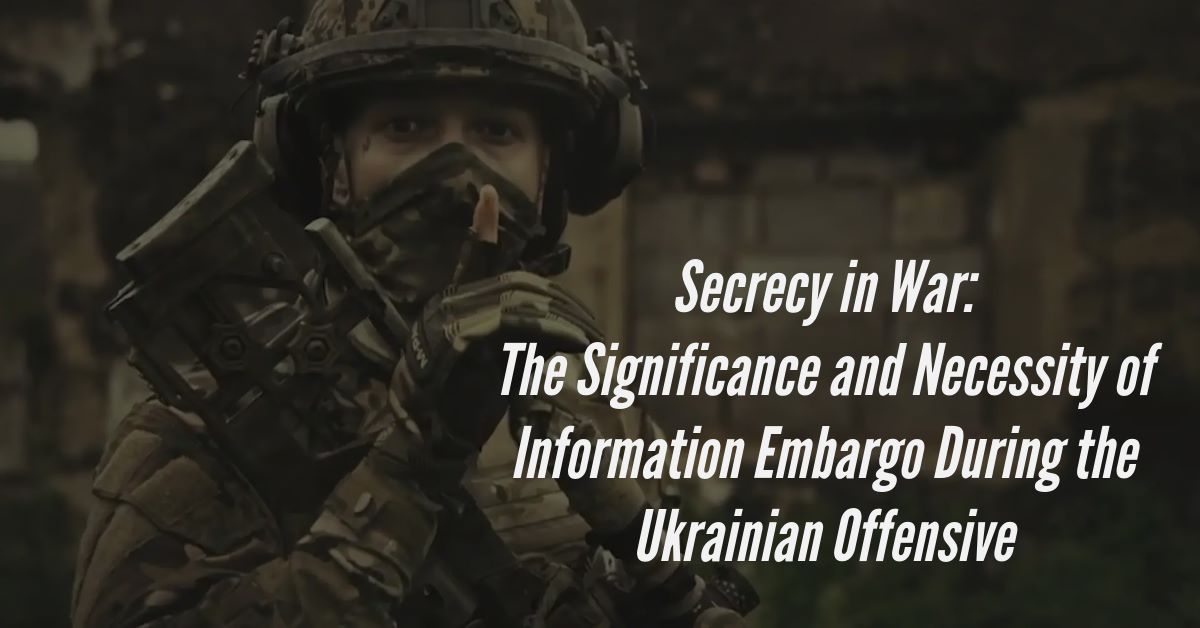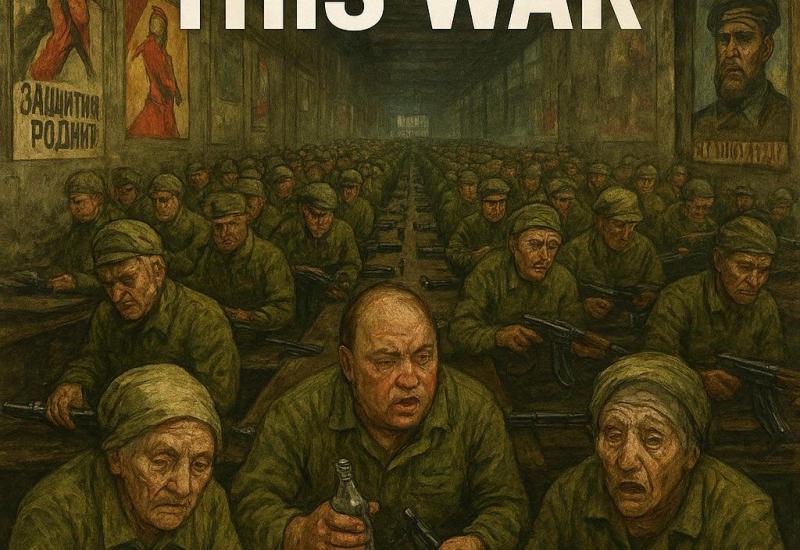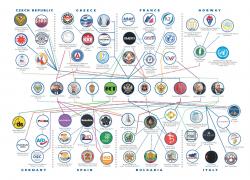Secrecy in War: The Significance and Necessity of Information Embargo During the Ukrainian Offensive
Secrecy in WaAmidst the ongoing conflicts and escalating violence in Ukraine, the Ukrainian government has issued an urgent message to soldiers and civilians, urging them not to disseminate any information about troop movements, attacks, or similarly sensitive military details. This measure is seen as a crucial component of the ongoing Ukrainian military offensive to ensure its success and safety. In this report, we will examine the meaning and necessity of this measure in greater detail and analyze its impact on the conflict in Ukraine.
Secrecy plays a vital role in any conflict, enabling the armed forces to maintain tactical advantages and surprise the enemy. By keeping information about upcoming attacks confidential, the Ukrainian army can effectively coordinate its operations and achieve strategic objectives. It also serves to ensure the safety of its own troops. If details about troop movements or attack plans become public knowledge, hostile forces could take targeted countermeasures, significantly diminishing the success prospects of the Ukrainian military. Another positive effect is that it allows the army to optimize the use of its resources and forces without providing the enemy with a tactical advantage. Additionally, withholding information helps to curb disinformation. In conflicts, false or misleading information is often disseminated to propagate propaganda or manipulate public opinion. The information embargo restricts the spread of such disinformation, thereby bolstering the credibility of the Ukrainian armed forces and their operations.
One of the primary objectives of the information embargo is the protection of soldiers and civilians. The Russian aggression in Ukraine has already resulted in significant losses, and disclosing sensitive information could increase the risk of further casualties. By limiting the dissemination of information, the potential for targeted attacks on specific units or civilians is minimized. This contributes to the preservation of human life and is a crucial factor in the morale of the armed forces. Soldiers and civilians must be protected from potential dangers that could arise from the disclosure of sensitive information. If news about upcoming attacks or troop movements becomes publicly known, hostile forces can exploit that information to launch attacks specifically targeting vulnerable units or civilian targets. Moreover, the psychological component plays a vital role. Soldiers who can rely on the protection of their information are strengthened in their effectiveness and have higher confidence in their chain of command. Similarly, civilians feel safer when they know that the government is taking measures to protect sensitive information. This has positive implications for the overall mood and cohesion in society.
During times of military conflict, disinformation becomes a powerful tool employed by various parties to spread propaganda and manipulate public opinion. The information embargo helps restrict the dissemination of disinformation. By retaining control over sensitive information, the possibility of false or misleading information being spread, leading to confusion and misinformation, is diminished. The information embargo counteracts this negative trend and strengthens the credibility of the Ukrainian government. When the population can trust that they are receiving reliable information, potential divisions and mistrust in society can be minimized, influencing the war-weariness of the Ukrainian population.
Another significant aspect is the maintenance of tactical surprise. By keeping troop movements and attack plans confidential, the Ukrainian army can surprise its adversaries and gain a strategic advantage. When the enemy is informed in advance about upcoming operations, they can adjust their defense strategies accordingly, reducing the chances of success for the Ukrainian armed forces. Secrecy enables the army to effectively plan its operations and maintain the element of surprise, which is a crucial factor during times of war. It allows the armed forces to destabilize their enemies and gain a strategic advantage.
Critics of these restrictions argue that they impede press freedom and people's right to access information. It is crucial for the Ukrainian government to pursue a balanced approach to information secrecy and ensure that fundamental democratic principles are upheld. Restricting press freedom and access to information can lead to a lack of transparency and accountability. It is essential for the government to ensure that the information embargo is not abused to conceal misconduct or wrongdoing. Citizens have the right to be informed about events in their country and form their own opinions. Therefore, the secrecy of information should be limited to the necessary extent and accompanied by transparent mechanisms.
Another challenge is that the information embargo may not be fully enforceable. In an era of digital communication and social media, it is challenging to exert complete control over the spread of information. Even if the government takes measures to keep information secret, leaks may occur, and information may reach the public. It is important for the government to take appropriate measures to prevent such leaks and ensure that those who violate the information embargo are held accountable.
Overall, the embargo in the current Ukrainian military offensive is a necessary tool for achieving military objectives successfully. The secrecy surrounding sensitive military information ensures the safety of their own troops, protects soldiers and civilians from potential dangers, and contributes to the maintenance of tactical surprise. Additionally, the information embargo helps curb disinformation and propaganda while strengthening the public's trust in the government and the armed forces. The embargo is a crucial instrument to ensure the security and success of the Ukrainian armed forces in the ongoing offensive. It is hoped that the government will employ this tool responsibly and respect the fundamental rights and freedoms of citizens while acknowledging the necessity of information secrecy.
Christian Gruber
Chief correspondence eastern Europe Freedom Today




















